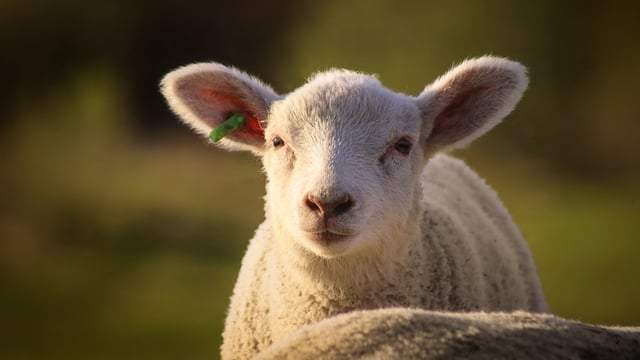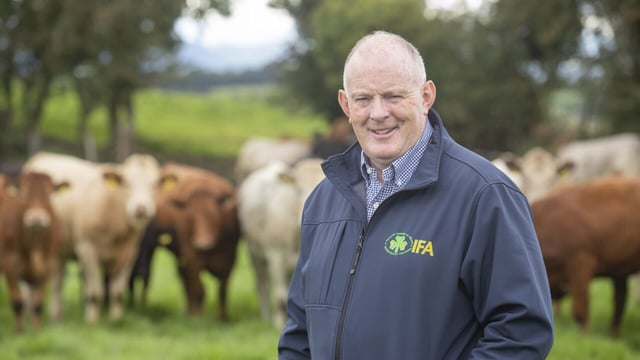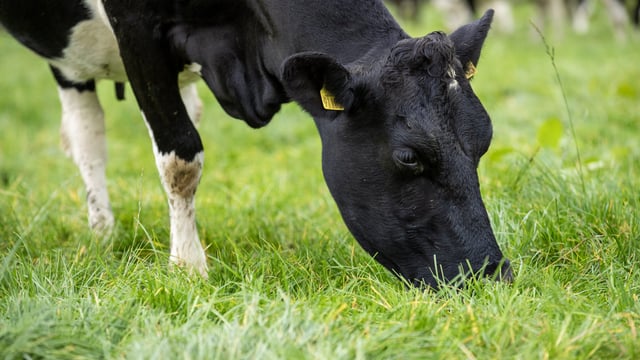Macra 2025 elections: 'We need to come up with a clear sales pitch' - O'Neill
Two candidates are currently in the running to be the next president of Macra - Josephine O’Neill from Co. Kilkenny and Conor Murphy from Co. Cork.
Ballot papers have been issued to Macra clubs throughout Ireland with the final count due to take place in the Irish Farm Centre on April 4.
Agriland has been speaking to both candidates about why they are in the race to be the next president of the organisation which has 170 clubs throughout Ireland.
Both candidates were given the opportunity to answer the exact same questions and set out their pitch to voters.
Here is what Josephine O'Neill from Callan Macra had to say.
Why do you wish to become president?
"I joined Macra almost 12 years ago, and since then, I gained a lot from the organization in terms of experiences, opportunities for personal development and the great memories that I've made as well. The organisation means an awful lot to me.
"I've also been actively involved within the organisation in terms of the responsibilities and the roles that I've taken on over the years. I've been club chairperson, secretary, county secretary and treasurer.
"I'm currently the national council representative for Kilkenny and I've been the vice chairperson of the competitions committee. I'm currently the national chairperson of the Board of Macra.
"So between the passion that I have for the organisation and the experience that I've gained, I feel that I'm the best person to be able to contribute, to give back to, to grow and develop the organisation further in the capacity as president."
What qualities and skills do you have that would make you the best candidate for the role?
"As a longstanding member, I have experience which I think will stand to me as president. I also believe the passion that I have for the organisation will drive me be the best that I can be.
"I am a secondary school teacher so in terms of the skills that I can bring to the role, I've got strong communication skills, which I've developed through the organisation as well through competitions like public speaking and debating.
"I've got good communication skills and I've also good teamwork skills from working within a staffroom situation, which I feel will benefit me as president in my work with members in clubs across the counties and regions around Ireland.
"These specific skills will also help me lobby on behalf of members at local, national and European levels, and also working with the staff and head office and all of the other organisations that we would collaborate with."
How would Macra evolve under your leadership and what is your plan for the club’s future?
"Firstly, I would plan to work with the three national subcommittees: Ag Affairs, Rural Youth and Competition, who already do so much for the members of the organisation. I would look forward to working with them.
"With agricultural affairs, it would be important to represent and advocate on behalf of young farmers on issues like the nitrate derogation, generational renewal, TB and CAP on all political levels - local, national and European.
"As a home economics teacher and daughter of a beef and tillage farmer, I value where our food comes from and I know how much our farmers do to produce high quality, sustainable produce. I would like to develop a campaign to showcase the role our members play in the agri-food sector.
"I also want to continue to support the rural youth subcommittee in developing policy to support young people to remain in rural Ireland and I'll work with the competition committee to showcase what what they offer."
"I'm a member who benefited an awful lot from the social side of the organisation. I've been involved in national festivals, I won the international Miss Macra Festival and I've been involved in the organization of the Mr. Personality Festival.
"I know how important Macra's social opportunities are to members and I look forward to working with the presidential team to provide more of these opportunities and to continue support the festival committees going forward.
"I've already mentioned that I'm a secondary school teacher and I see the students in front of me as the future members of the organisation.
"I would look forward to working with and collaborating with secondary schools to develop relationships with the students, and also with ag colleges so that they become more aware of the organisation and everything it has to offer."
How do you intend to increase retention and recruitment of members and what strategies will you use to attract youth who may not come from farming backgrounds?
"As an organisation, a lot of our members are not from farming backgrounds. In terms of getting new members involved, there's a number of things that I would like to do. The first is to develop a clear sales pitch for Macra.
"We need to come up with a clear sales pitch because Macra offers so much, be it advocacy and representation for young farmers and young people in rural Ireland as well the competitions that it offers, including public speaking, debating, drama, and sports.
"There's a lot of social outlets for people from rural Ireland to engage with in the organisation, whether that's going to a table quiz or going to a festival or a dinner dance and I think we need to develop a clear sales pitch and an explanation of what MOCRA is to build brand awareness.
"We can highlight this sales pitch through a recruitment drive via social media and print media campaigns, to start getting our name out there to the future members so that they can get a good sense of what the organisation actually is.
"I started the 'Know Your Ag Science Quiz' last year for 5th year Ag Science students in collaboration with University College Dublin and I think providing experiences like this is an important means of introducing future members to the organisation."
Has Macra been successful to date in attracting members from a wide range of backgrounds?
"I think so yes. When I look at my own club, there are people who come from every walk of life and and a number of these members do not come from farming backgrounds.
"Macra is an organization that welcomes everyone and our membership numbers are increasing month on month. As an organisation that prides itself in being representative and inclusive to everybody, it is hugely positive to see these growing membership figures."
How do you plan to support and empower young women in agriculture through your presidency?
"We're lucky in Macra to have a 'Women in Ag' working group so it's about continuing to work with that group to provide greater support for all of the great activities that they organize.
"I recently attended the Macra and the Agricultural Science Association's International Women's Day event and it was there that one of the speakers mentioned that sometimes women just need the confidence to be able to speak their opinion.
"She explained that women have the knowledge, the skills and the experience, but sometimes they just lack the confidence to realise it. So, I will work on ways that we can provide more support to women to help instill this."
What do you think are the biggest challenges facing young farmers and rural communities today and how would you address them as President of Macra?
"So there's a number of key issues that young farmers are facing. First of all, when we look at the nitrates derogation, as an organisation, we must the lobby to ensure that nitrate levels are retained at 220.
"We must also lobby on the upcoming CAP reform and on generational renewal, which is not only an issue affecting young farmers but one that impacts young people across rural Ireland.
"We need to look at ways to fight for better services in these areas but before we even consider this, we need to see the delivery of the rural planning guidelines so that our young people can continue to live in rural Ireland and to safegaurd our vibrant and resilient rural communities."
Do you believe the organisation, in it's current form, could apply greater pressure when lobbying on behalf of rural youth in Ireland at local, national and EU levels?
"I suppose in recent years, our organisation has developed stronger lobbying ties and it's important that we continue to grow and develop these.
"We had a national lobbying day last year, which I was lucky enough to be able to attend, where we used our collective skills to highlight all the issues facing young people in rural Ireland.
"That's something that happens, not just at a national level, but at a grassroots level. We encourage all our members to lobby local politicians and TDs to fight for rural Ireland, the benefits of which are already paying off but it is something that we continually improve on."
How would you ensure the organisation remains relevant in the face of rural decline?
"I think it's important that we continue to engage with our members to start with, to ensure Macra offers what they want.
"We can do that through greater consultation processes to ensure that we are always asking how we can better serve our members and wider rural Ireland.
"Through continued lobbying, we can ensure that services are provided and maintained to stop rural decline from continuing to occur."





